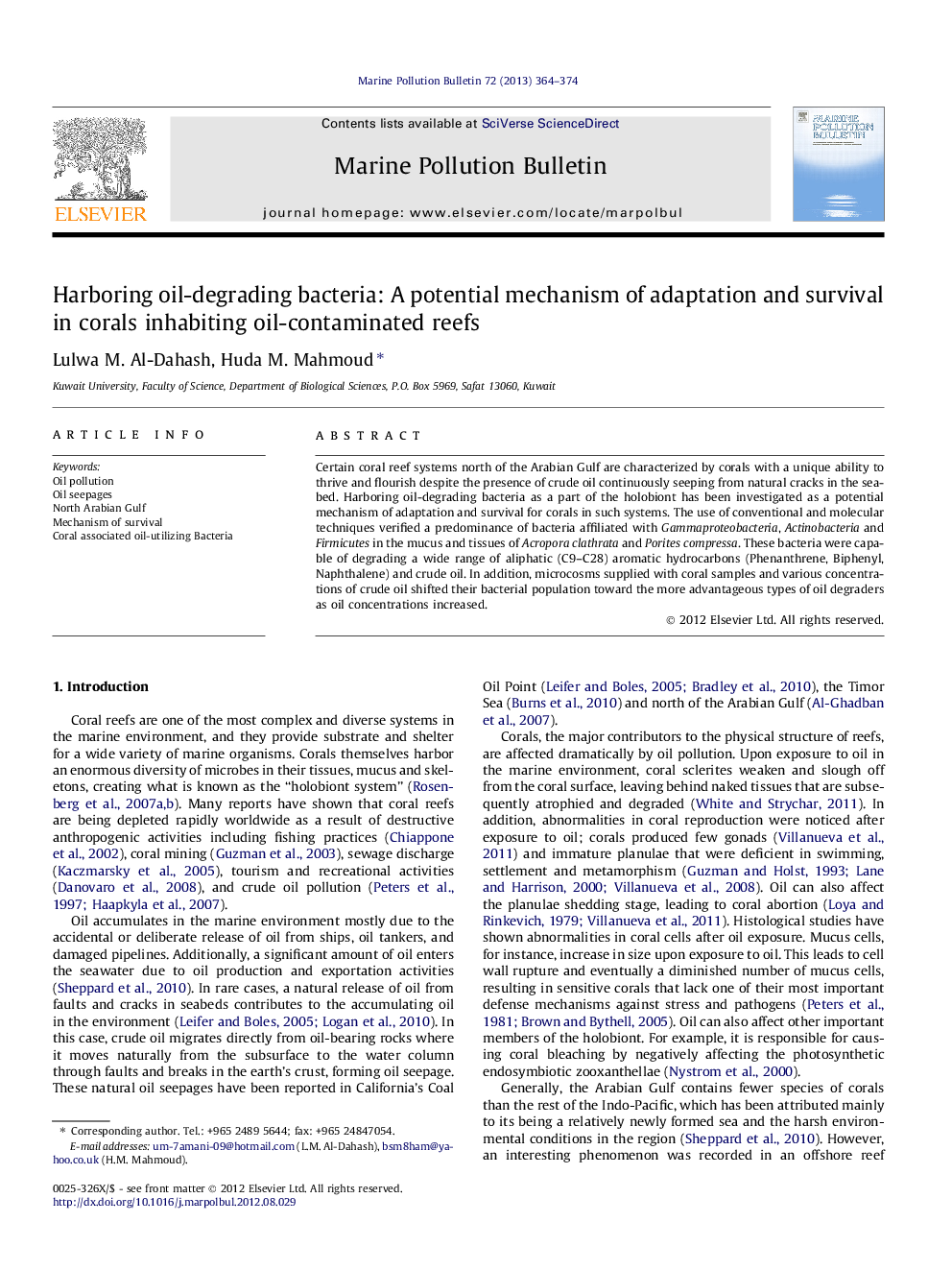| Article ID | Journal | Published Year | Pages | File Type |
|---|---|---|---|---|
| 4476790 | Marine Pollution Bulletin | 2013 | 11 Pages |
Certain coral reef systems north of the Arabian Gulf are characterized by corals with a unique ability to thrive and flourish despite the presence of crude oil continuously seeping from natural cracks in the seabed. Harboring oil-degrading bacteria as a part of the holobiont has been investigated as a potential mechanism of adaptation and survival for corals in such systems. The use of conventional and molecular techniques verified a predominance of bacteria affiliated with Gammaproteobacteria, Actinobacteria and Firmicutes in the mucus and tissues of Acropora clathrata and Porites compressa. These bacteria were capable of degrading a wide range of aliphatic (C9–C28) aromatic hydrocarbons (Phenanthrene, Biphenyl, Naphthalene) and crude oil. In addition, microcosms supplied with coral samples and various concentrations of crude oil shifted their bacterial population toward the more advantageous types of oil degraders as oil concentrations increased.
► Oil utilizing bacteria may help corals to survive in presence of crude oil. ► Coral mucus and tissue dominated by bacteria capable of degrading hydrocarbons. ► Coral under oil stress alter their residential bacterial communities. ► Microcosms showed shift of coral bacteria toward the advantageous oil degraders.
